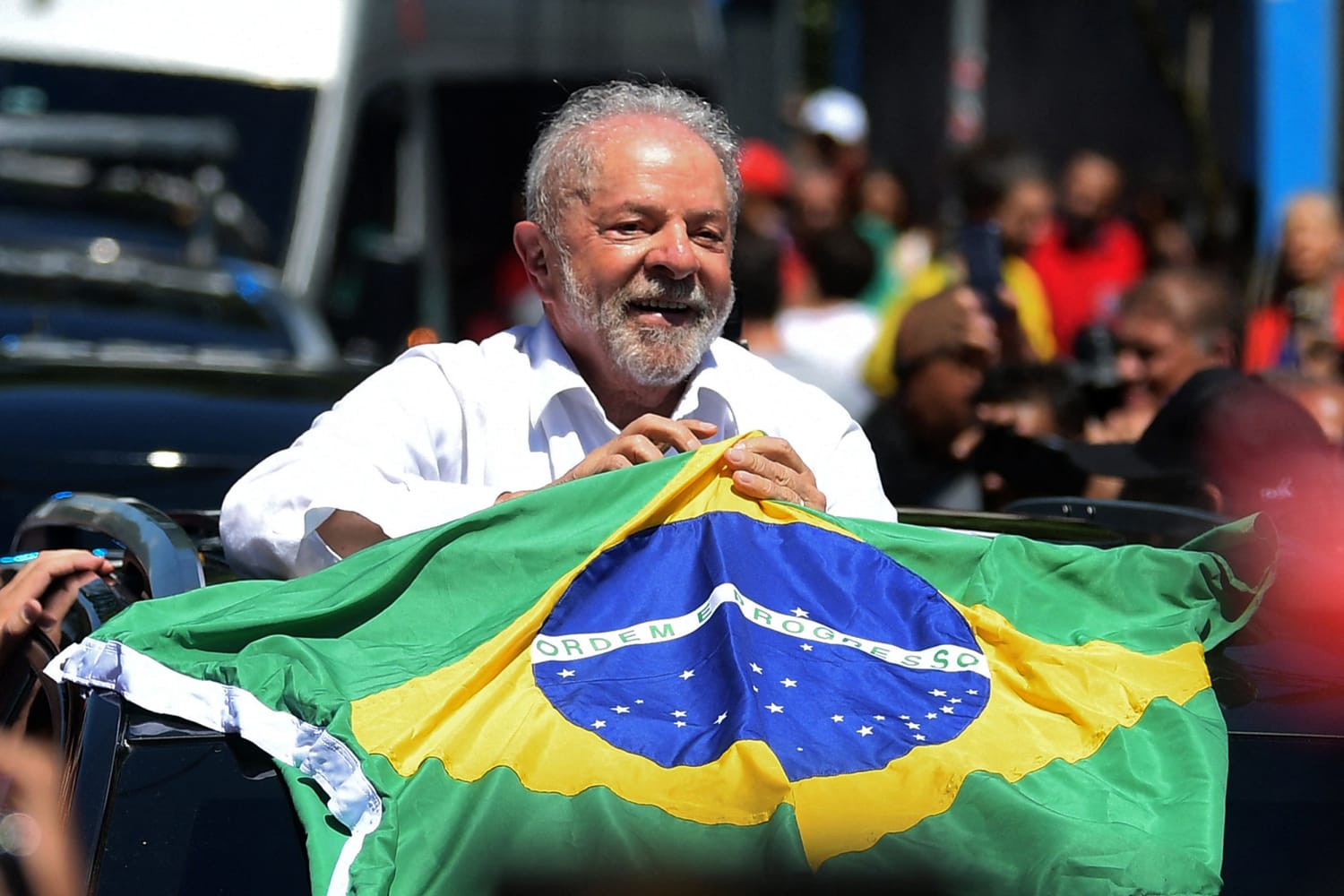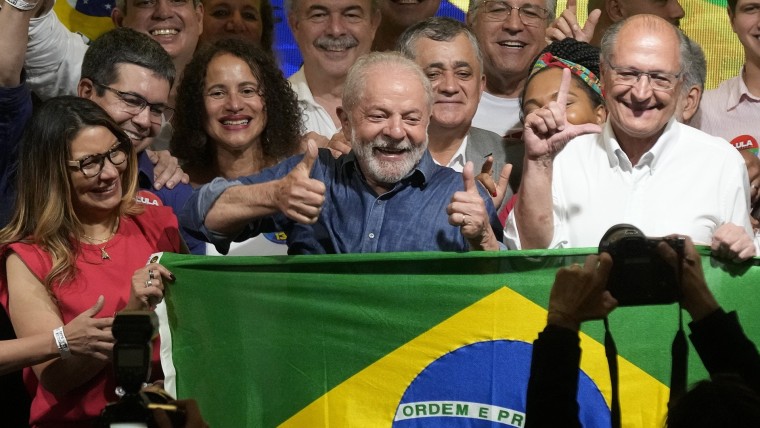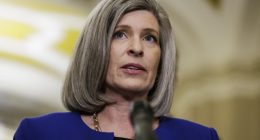The outcome of Brazil’s presidential election Sunday is being hailed as a crucial victory for global climate, with experts saying the country now has an opportunity to curb rampant deforestation of the Amazon rainforest and jump-start a green economy.
Luiz Inácio Lula da Silva’s narrow defeat over Jair Bolsonaro offered hope to environmentalists in Brazil and around the world for a new era of aggressive climate action, including much-needed efforts to save the Amazon.
“This election is very important because it brings Brazil back to the climate stage as a nation that can be one of the strongest allies in the global efforts to address climate change,” said Carolina Genin, climate director at WRI Brasil, a branch of the research nonprofit World Resources Institute.
The leftist da Silva, who is commonly known as “Lula,” previously led the country from 2003 to 2010. The 77-year-old has vowed to fight Amazon deforestation and crack down on illegal gold miners, loggers and ranchers who have invaded indigenous land and caused widespread environmental destruction.
“Brazil is ready to retake its leadership in the fight against the climate crisis,” Lula said in a victory speech in Sao Paulo, according to Reuters. “Brazil and the planet need a living Amazon.”
His promise to curb Amazon deforestation is essential for the planet to stay on track under the goals of the Paris Agreement, which aims to keep global warming under 1.5 degrees Celsius to limit irreversible impacts on ecosystems and human health.
“The Amazon is the key contribution that Brazil can give to mitigate climate change to keep us on track for the 1.5 [degrees] vision,” Genin said. “We usually say that there is no 1.5 without the Amazon.”
She added, however, that the health of the Amazon also depends on a sustainable economic development model that is not built on deforestation and illegal activities.
From 2004 to 2012, during Lula’s presidency and the tenure of his successor, deforestation fell by roughly 70%, according to the London think tank Chatham House. Lula instituted so-called command-and-control policies that used regulations and better monitoring to decrease deforestation.
“The first time Lula was president, one of the lessons learned was that you can decrease deforestation and still increase production of the agriculture sector,” Genin said. “There’s no correlation between them, and that’s a good thing.”
Under Bolsonaro, deforestation of the Amazon soared to a 15-year high, with scientists warning that the world’s largest rainforest was nearing a tipping point beyond which there would be irreversible consequences for the entire planet.
The vast Amazon rainforest plays a critical role as a carbon sink, absorbing carbon dioxide from the atmosphere and releasing oxygen. It’s this function that has earned the Amazon its nickname of the “lungs of the planet.”
But in recent years, as Bolsonaro dismantled environmental protections and accelerated large-scale deforestation of the Amazon — often to expand the country’s beef and soy production — the fragile ecosystem has been under serious threat.
In just the first six months of 2022, a record-high 1,500 square miles were cleared in the Amazon, equivalent to an area five times the size of New York City, Brazil’s space agency reported in July.
A 2021 study published in the journal Nature found that as a result of deforestation and fires in the Amazon basin, parts of the rainforest now emit more carbon dioxide than they absorb. The findings added new urgency to restore balance to the Amazon and avert the worst consequences of climate change.
Lula’s victory may be the turning point that environmentalists have been hoping for.
“[S]upporters of climate change action in Brazil and around the world can take a temporary sigh of relief,” Ana Yang, executive director of the Sustainability Accelerator at Chatham House, and Ana Toni, executive director of the Brazil-based Institute for Climate and Society, wrote in a blog post published Monday.
Lula has also promised to restore the country’s environmental institutions and set new targets for reducing greenhouse gas emissions.
These developments may shape talks at the United Nations Climate Change Conference in Egypt next week, when world leaders will gather for the 27th “conference of parties” under the U.N. Framework Convention on Climate Change.
The meeting, known as COP 27, will involve negotiations among countries over how to meet their emissions-cutting targets, what adaptation efforts to focus on, and how to provide funding to countries least responsible for global warming and most affected by climate change.
Brazil’s delegation at COP 27 will be made up of members of Bolsonaro’s administration, but the election’s outcome will likely have a big impact down the road, Genin said.
“I think we’ll feel more of the positive impacts next year,” she said. “In his speech yesterday, Lula was very eloquent about the importance of Brazil going back to being understood as a key diplomatic partner in climate negotiations and getting back its environmental power.”
Source: | This article originally belongs to Nbcnews.com











